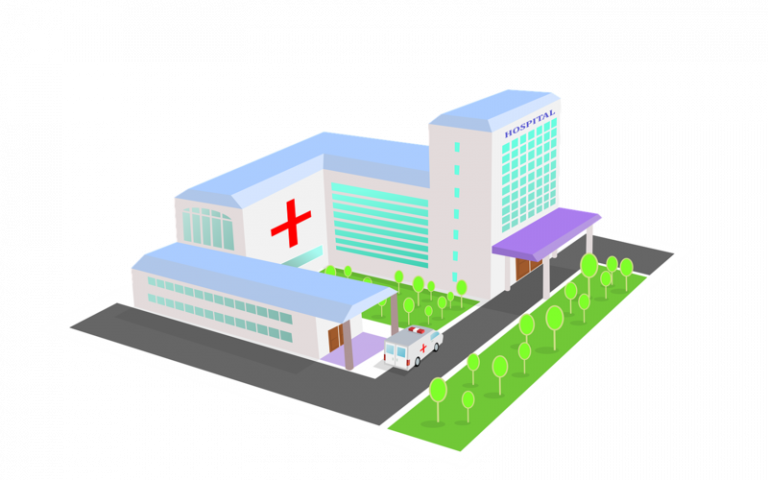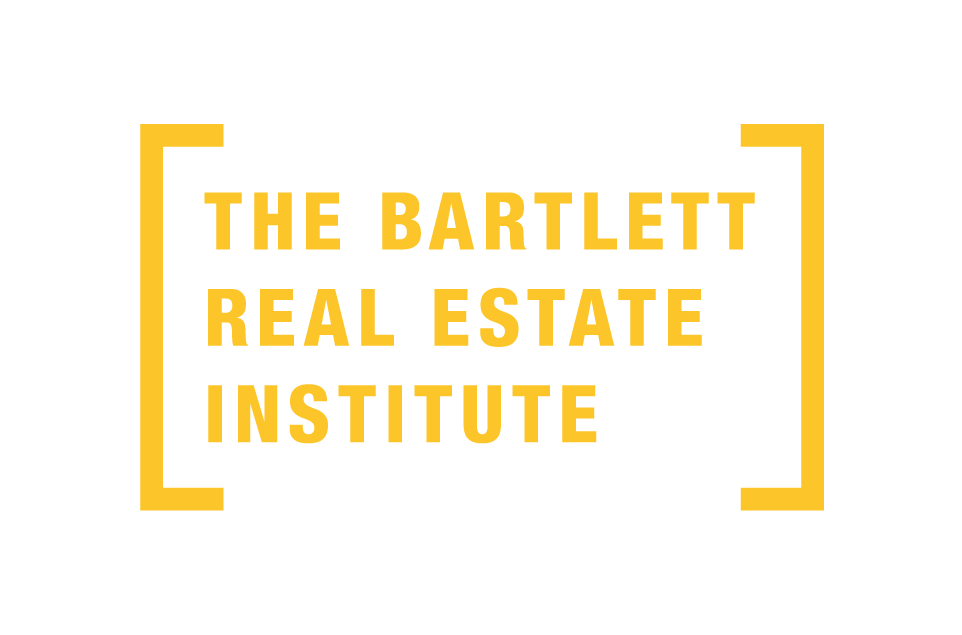Co-designing Complex Healthcare Facilities for Performance
29 January 2020, 9:30 am–5:00 pm

Immerse yourself in a one-day short course that'll give you the knowledge of ways to improve patient experience, staff satisfaction and effectiveness.
Event Information
Open to
- All
Organiser
-
Bandana Rehncy02031088162
Location
-
Bartlett Real Estate Institute8-9East Bay Lane, Queen Elizabeth Olympic ParkLondonE15 2GWUnited Kingdom
Preparing complex organisations for new facilities and technology is a key success factor for the long-term sustainability and increased performance of an organisation. In practice though, organisational development and facility design end up in different silos. This short course aims to bring them together by gathering UCL academics with distinguished international practitioners and healthcare providers.
- Course Overview
Hospital facilities are complex and expensive to plan, design, build and maintain. Infrastructure projects need input from a huge range of people – managers, designers, engineers, clinicians, caregivers, technicians, estates professionals and patients. As a further complication the concept of the hospital is put into question through new models of care and digitalization.
Building a hospital influences the identity and challenges the culture of an organisation. It is a life-changing event, with so many opportunities for improvement; the chance to improve patient experience, staff satisfaction and effectiveness are immense. However, without cultural change at the time, the benefits of new infrastructure are at risk. The result could be dissatisfaction, inefficiency and high operating costs.
Whilst the design and construction process of hospitals is both professionally managed and highly standardized, the organization often struggles with keeping up in defining their requirements and develop a commonly shared vision of the future way of working across specialties and professions.
During this course participants will understand the importance of aligning organisational development and infrastructure design and will get to know tools and techniques for engaging patients and users in an effective process of co-design. You will be able to get inspired by best practice examples and participate in hands-on design exercise based on lean principles and design thinking methodology.
The course is run by the Bartlett Real Estate Institute UCL and offers great networking opportunities.
Who this course is for:
The course is for a mix of professionals and students with an interest in healthcare and design and of multiple backgrounds: architects, designers, engineers, facility managers, healthcare planners, healthcare professionals, healthcare managers, project manager and consultants with an interest on healthcare buildings. Professionals of the care home sector might also find the course useful as well as people working for capital planning and facilities and estates of the NHS.
- Agenda
9.30am – 10.00am: Welcome, coffee and networking
10.00am – 10.30am: ‘Introduction’ by Dr Evangelia Chrysikou (Lecturer - Program Director MSc Healthcare Facilities, the Bartlett Real Estate Institute UCL)
10:30am – 11:15am: ‘New infrastructure – a unique chance to put patients first’ by Micha Kämpfer (CEO walkerproject Scandinavia, Sweden)
11.15am – 11.30am: Break
11.30am – 12.15pm: ‘Case Study SUS2023 – Stavanger University Hospital’ by Maria Endressen (Project Manager A&E – Stavanger University Hospital, Norway)
12.15pm - 13.15pm: Lunch break and networking
13.15pm - 13.45pm: ‘Principle-led Co-Design’, Micha Kämpfer
13.45pm – 15.15pm: Workshop ‘First Round Prototyping’
15.15pm – 15.30pm: Break
15.30pm – 16.00pm: Workshop ‘Iterate! Second Round Prototyping: draw the floor plan’
16:00pm – 16.30pm: Presentation of the prototypes and evaluation by students and delegates
16.30pm – 17.00pm: Key learnings, discussion and conclusion
Note: The exact times of the structure of the day may change slightly.
By the end of this short course you will:
- Have an introduction to co-design methods and techniques in complex projects
- Acquire a broader understanding of how principle-based design can influence buildings for health and healthcare delivery
- Have experienced a co-design session yourself
- Get a glimpse of the potential of the combination of organizational design and architecture
- Understand the challenges/opportunities for healthcare facility designers
- Have an overview of some European best practices for healthcare buildings, especially the Scandinavian and Swiss context
- Interact and network with leading professionals, people commissioning projects and academics from multiple-disciplines and gain a multiple perspective on the subject.
- Increase your understanding on working iteratively across sectors and collaborating with different disciplines
As a short course student you won't be formally assessed, but you're expected to fully participate in group work. You'll receive a certificate of attendance on completion of the course.
About the speakers:
- Dr Evangelia Chrysikou – Course lead
Evangelia is Lecturer (Assistant Professor) at The Bartlett Real Estate Institute, UCL in London, Program Director of the MSc Healthcare Facilities and a medical architect. She specialises in healthcare facilities, holding a rare PhD on mental health facilities from UCL and a former Marie Curie H2020 Fellow. She has been actively involved in policymaking, being Coordinator on D4 Action Group of the European Innovation Partnership on Active and Healthy Ageing (EIP on AHA) of the European Commission (EC) and consulted, on behalf of the EC, the Hellenic Ministry of Health and the Centre of European Constitutional Law on legislation regarding mental health facilities.
Her work on therapeutic environments has received prestigious international awards (Singapore 2009, Kuala Lumpur 2012, Brisbane 2013, Birmingham 2014, London 2014, Vienna 2017). Her research on mental health, ageing, accessibility and mental health, autism, social inclusion, healthcare, welfare and wellness facilities, medical architecture, medical tourism planning spans in several countries of the world (UK, France, Belgium, Greece, Middle East, Japan, New Zealand etc.). Currently, she is the PI on the Butterfield award of the Great Britain Sasakawa Foundation and a CoI at a Marsden Fund from the Royal Society of New Zealand. Evangelia authored national guidelines for mental health facilities in the community for Greece on behalf of the EU. Additionally, she authored 2 books, is a healthcare architecture editor, reviewer, active member of several professional and scientific associations and a TED-MED speaker. She is also Member of the Board at the Scholar’s Association Onassis Foundation.
- Micha Kämpfer
Micha Kämpfer is Partner, leading the Scandinavian branch of walkerproject ag, one of the leading hospital advisory groups in Europe. They are among the few organizations that help hospitals to manage the cultural change during hospital construction projects.
Micha is an accomplished project manager for strategy development and execution in healthcare. Micha facilitates patient-centric innovation and acts as expert for continuous improvement in emergency, inpatient and primary care. His focus is on deploying strategies, best practice and evidence into daily practice. Micha has a track-record in applying lean and design thinking methodology in healthcare. He provides international experience and a network for patient-centricity in Europe (Switzerland, Scandinavia, Netherlands) and USA. Micha hosts also lectures about « Lean Hospital » for the Swiss Hospital Association H+ Bildung. He is member of the Swedish Association for Innovation Management and the European Health Property Network. Micha holds an M.A. from both the University of St.Gallen, Switzerland and the Institute for Political Sciences in Paris, France.
- Jacopo Dandrea
Jacopo Dandrea is a Consultant at walkerproject. As an innovation enthusiast, at walkerproject, Jacopo assists his clients in their strategic initiatives, process improvements and through their change management projects. His previous experience as a cross-industry consultant, enables Jacopo to always think out of the box and apply the most suitable methodologies in the healthcare industry, such as Design Thinking (DT), Integrated Facility Design (IFD) and Lean Start-up. By generating new ideas and creating prototypes, in his lean hospital and new build projects, Jacopo advices clients on how to adapt their facilities to the new trends and to the ever-changing patient expectations. He completed his master’s degree in Business Innovation at the University of St. Gallen (HSG) where he also spent an exchange semester at the City University of Hong Kong (CityU). During his studies, he had the opportunity to develop his analytical, methodical and creative problem-solving skills. In addition, the passion for innovation has led Jacopo to carry out a certified course offered by the Massachusetts Institute of Technology (MIT) to improve his expertise in Design Thinking.
- Maria Endressen
Maria Endresen is project manager in the SUS2023 Organizational Development project. Answering the Stavanger region’s need for a new hospital, SUS2023 aims to provide a modern, specialist healthcare solution, that prioritizes the future needs and requirements of its patients. Currently, Maria is working with developing the emergency department. They are developing and structuring the new ways of working in the new hospital in 2023. This position combines her interests in process innovation and healthcare, thus providing continuous development within these fields as well as change management. Maria holds an M.Sc. in Business, majoring in Logistics, Operations and Supply Chain Management from BI Norwegian Business School. Her master thesis about process innovation in the construction industry was written in collaboration with Norway’s largest public client and led to a publication in the peer-reviewed journal “Engineering Construction and Architectural Management”. Prior to joining the SUS2023 project, Maria worked as a consultant at PwC Oslo.
Cost:
The standard course fee is £300.
A discounted rate of £150 is available for all students, UCL partners (including NHS) and staff.
 Close
Close


